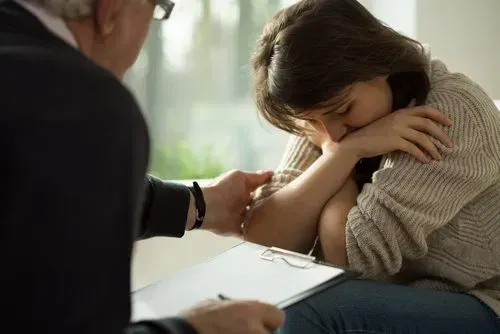Chronic Impulsivity in Lexington, Richmond & Frankfort KY
What is Chronic Impulsivity?
Chronic impulsivity is a class of psychiatric disorders characterized by impulsivity, or the failure to resist a temptation, urge or impulse that may harm oneself or others. Impulsivity is the severe lack of self-regulation that can manifest as the inability to control immediate reactions or difficultly considering the consequences of actions, completing tasks quietly or not interrupting conversation. Impulsiveness becomes dysfunctional when spur-of-the-moment decisions are insufficiently regulated by rational thought, and chronically harm the decision maker and others.
Signs & Symptoms
The signs and symptoms of chronic impulsivity vary based on the age of the children or adolescents suffering from them, the environment in which they are living and whether they are male or female. Some examples of different symptoms associated with chronic impulsivity are listed below:
Behavioral symptoms:
- Aggression
- Acting out in risky sexual behaviors
- Stealing
- Playing with fire
- Lying
Physical symptoms:
- The presence of STDs in adolescents who are participating in risky sexual behaviors
- Burns on the skin of children and adolescents who experiment or play with fire
- Injuries resulting from physical fights
Cognitive symptoms:
- Agitation
- Irritability
- Lack of patience
- Difficulty concentrating
- Obsessive and intrusive thoughts
- Frequent boredom
Psychosocial symptoms:
- Low self-esteem
- Social isolation
- Brief periods of emotional detachment
- Depression
- Increased levels of anxiety
Diagnosis & Treatment Options
Chronic impulsivity fits into four different categories:
- 1. Urgency – a desire to act immediately to avoid a threat or to avoid missing a perceived opportunity.
- 2. Whimsical – little or no serious consideration of positive and negative consequences of actions
- 3. Procrastination – unfettered acceptance of diversions to circumvent an undesirable task.
- 4. Thrill-seeking – experiencing a thrill associated with taking a big risk. Thrill seeking is usually associated with one of the following sub-categories:
- Kleptomania – an uncontrollable, repetitive impulse to steal.
- Pyromania – the deliberate and purposeful act of setting things on fire
- Compulsive sexual behavior – excessive or uncontrollable thoughts or behaviors revolving around sexual activities, including excessive masturbation, promiscuity, pornography and fetishes.
- Intermittent explosive disorder – recurrent behavioral outbursts that represent a person’s inability to control aggressive impulses.
Treatment for chronic impulsivity includes medication and therapy to curb impulses. Therapy guides clients in modifying behavior and developing healthy self-esteem to get to the underlying cause of impulsivity and to produce more positive or more appropriate responses.
There Is Hope!
With treatment through medication and therapy, chronic impulsivity can be managed to allow for a productive life. Call our office today to schedule an appointment for more information about chronic impulsivity and to learn how we can help treat it.
New Client Info
Lexington, KY
Darby Creek Location
501 Darby Creek Road
Suite 11
Lexington KY, 40509
Phone:
859-338-0466
Fax:
859-294-0802
All Locations
LIST
MAP
- Darby Creek Lexington, KY 501 Darby Creek Road, Lexington, KY, United States
- Duval Street Location Lexington, KY 1092 Duval Street, Lexington, KY, United States
- Frankfort, KY 105 Diagnostic Dr, Frankfort, KY 40601, United States
- 1043 Center Dr, Richmond, KY 40475, United States 1043 Center Dr, Richmond, KY 40475, United States
Recent Posts
What is therapy?
Therapy is more long-term than counseling and focuses on a broader range of issues. The underlying principle is that a person's patterns of thinking and unconscious awareness affect the way that person interacts with the world. The goal is to uncover those patterns and become aware of their effect and then learn new, healthier ways to think and interact.








